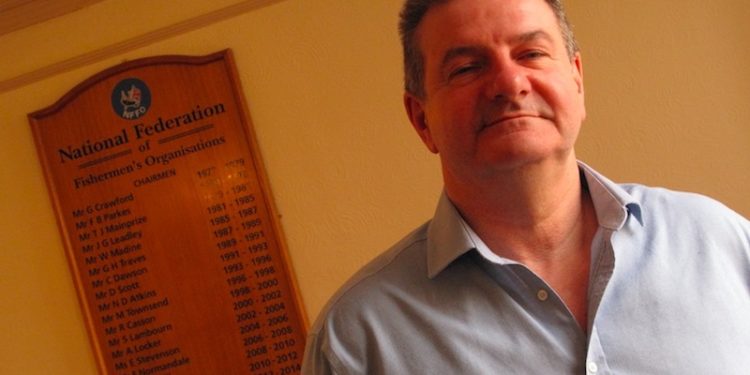With only a few weeks to go and the terms of the UK’s departure from the European Union still very unclear, NFFO chief executive Barrie Deas said that fishing has a higher profile than it has had for years.
‘At the moment the government’s aspirations are very closely aligned to those of the fishing industry – and fishing has not been so high on the priorities since the Cod Wars in the 1970s. When it came to the Withdrawal Agreement, the outstanding issues were Gibraltar and fishing – which demonstrates how important an issue fishing is,’ he said in an interview with Hook & Net.
At the same time as fishing assumes an unprecedented importance, the there are a plenty of unanswered questions and no real idea on what terms Brexit will take place.
‘From a fishing rights point of view, No Deal would be not bad, but for markets it would be very difficult. The Withdrawal Agreement pushes the whole thing further down the road. A Norway-style agreement would also not be a bad option, as that excludes fisheries and agriculture,’ he said.
The focus has shifted very firmly from Brussels to London, and the NFFO has been actively seeking to inform and interest members of both houses .
‘We’ve been talking to a lot of lords and MPs. We haven’t talked that much with Westminster over the last thirty years, as that’s not where the decisions have been made. But we’re talking to them now,’ he said.
‘There have been many hours of discussion. In broad terms we are happy with the government’s position, although the EU has made it plain that it sees a link between fishing access and access to markets. But there would be a very heavy political price to pay for a government that gives way on this,’ he said, commenting that the UK has a very strong hand to play.
‘It’s because of access. Nobody sensible expects to see a wholesale expulsion from UK waters, but access has to be on the UK’s terms.’
He commented that there are long-running grievances, such as the UK’s 9% share of Channel cod compared to the 84% French share, and the 10% of Celtic Sea haddock the UK fleet gets, while France has a 66% share.
‘Those are the extreme examples, and all this goes back to the 1983 agreement. The irony of this is that if it hadn’t been for Brexit happening, then the EU Commission would be at the forefront of making changes to relative stability, due to the changing distributions of fish species and because they see it as a barrier to the Landing Obligation. They are aware that the 1983 distribution of shares is not appropriate today –and under other circumstances it would be the Commission leading the charge on this,’ he said.
‘But now historical attachment is everything and the UK has a strong hand as it has the fish in its waters,’ he said, speculating on possible outcomes.
‘But we can’t disregard the market, especially for fresh and live exports, which means shellfish. Tariffs present problems, but these can be factored in, with costs passed down the line,’ he said, commenting that these concerns are outweighed by those relating to less easily anticipated non-tariff barriers, such as delays a
nd inspections.
The full interview with Barrie Deas is here.









